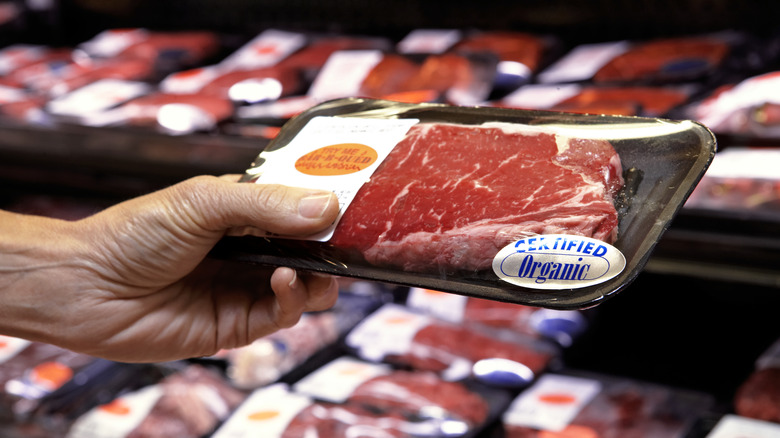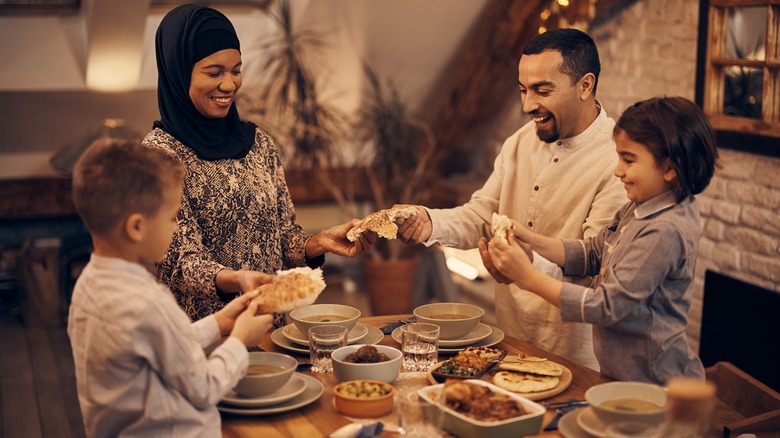Rising Meat Prices Inhibit 2023 Passover And Ramadan Celebrations
Across the world, countless people are feeling the devastating effects of inflation. We saw previously unseen prices slapped on essential consumer goods in 2022. Food inflation has escalated to the point where people are driving to the emergency room just for a meal. A wide variety of different items are becoming increasingly inaccessible. This obviously takes a toll on a person or a family's daily meals, but inflation can also have deeper implications, and threaten to keep people from practicing cultural and religious traditions.
For Christmas in 2022, countless Christian celebrators must've found themselves unable to cook a traditional holiday ham, which was 8% pricier than usual, or bake a festive goose, as poultry prices rose by 18%. If you wanted to round out the meal with a piece of pie, you would have been shelling out an extra 19%.
Those who will soon be celebrating either Ramadan or Passover will be forced to confront similar limitations when preparing ceremonial cuisine. Inflation could mean that traditional table settings are slightly more sparse this year.
Inflation's impact on Passover
Passover will begin on April 5 this year, so Jewish people around the world are gearing up for the holiday. Unfortunately, inflation could alter how Passover is celebrated. In particular, citizens of Israel will struggle to find affordable meat in the upcoming months. Specifically, the availability and price of chicken, fish, and beef have been affected as a result of a strike by Health Ministry veterinarians in the nation.
Furthermore, global patterns in food inflation will undoubtedly take a toll on the traditional Passover Seder plate, a platter that bears six symbolically significant foods. The zeroa portion of the plate is often represented in the form of a lamb shank, but the economy has taken a toll on the lamb market, which could necessitate using an alternative bone of some sort. Another staple of the Seder plate, the beitzah, or egg, will also be considerably more expensive for those observing Passover. Maror is represented on the Seder plate by the bitter herb horseradish, which has cost as much as 40% more during the recent era of inflation.
Price increases that could affect Ramadan recipes
Last year was also a horrible year for global food security. 349 million people struggled to keep themselves adequately fed in 2022. This can be attributed, in part, to worldwide inflation patterns. The continents that have been the most impacted by this trend are Africa and Asia.
All around the Middle East, food prices are skyrocketing. This year, the month-long Ramadan holiday season begins on March 22. Many people in Muslim-majority nations will struggle to find affordable ingredients for their Ramadan recipes. There have been attempts by governments and NGOs to combat the impact of inflation. Food inflation in Egypt at nearly 62%, which prompted the government to erect temporary markets stocked with discounted ingredients like meat and flour, in order to ready its populace for Ramadan, a time when prices always increase in Muslim communities, regardless of the inflation situation. Lebanon is experiencing an overall 123% inflation rate, which has raised the price of the packages that the American Near East Refugee Aid charity uses to feed Lebanese families for the whole of Ramadan considerably.
In South Africa, Islamic leaders have begun to encourage their mosques mass iftars, a traditional Ramadan meal, so that inflation can be mitigated by buying food in bulk. On the other side of the Atlantic, the government of New York City is working with a pair of Islamic charities to hand out over 7,000 iftar meals to underprivileged Muslim families.


